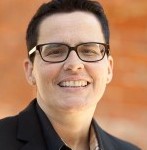 Professor Camilla Adang
Professor Camilla Adang
Camilla Adang is Professor of Arabic and Islamic Studies at Tel Aviv University, where she teaches classical Islamic thought. She studied Languages and Cultures of the Middle East and Spanish at Catholic University Nijmegen, The Netherlands (now Radboud University Nijmegen), where she also defended her PhD thesis entitled Muslim Writers on Judaism and the Hebrew Bible: From Ibn Rabban to Ibn Hazm, a revised version of which was published in 1996 by Brill. She has held research fellowships in Madrid, Jerusalem, Leiden, Wassenaar and Göttingen and has published widely on social and intellectual (including polemical) encounters between Muslims and Jews in the Middle Ages and the Ottoman period, as well as on the controversial legal scholar and theologian Ibn Ḥazm of Cordoba. She is one of the editors of the two Brill series, Studies on the Children of Abraham and Biblia Arabica: Texts and Studies and serves on the editorial or advisory boards of various other book series and scientific journals.
Select publications relevant to the project:
— Muslim Writers on Judaism and the Hebrew Bible: From Ibn Rabban to Ibn Hazm (Islamic Philosophy, Theology and Science, 22); Leiden: E.J. Brill, 1996.
— ‘A Jewish Reply to Ibn Ḥazm: Solomon b. Adret’s Polemic against Islam’, in: Maribel Fierro (ed.), Judíos y musulmanes en al-Andalus y el Magreb: Contactos intelectuales. Madrid: Casa de Velázquez, 2002, pp. 179-209.
— ‘The Chronology of the Israelites according to Ḥamza al-Iṣfahānī’, Jerusalem Studies in Arabic and Islam 32 (2006), pp. 286-310.
— ‘Biblical predictions of Muḥammad in al-Munqidh min al-taqlīd by the Imāmī Muʿtazilī Sadīd al-Dīn al-Ḥimmasī al-Rāzī (d. after 600/1204)’, in: C. Adang, S. Schmidtke & D. Sklare (eds.), A Common Rationality: Muʿtazilism in Islam and Judaism; Würzburg: Ergon Verlag, 2007, pp. 297-330.
— ‘A Polemic against Judaism by a Convert to Islam from the Ottoman Period: Risālat Ilzām al-Yahūd fīmā zaʿamū fī l-Tawrāt min qibal ʿilm al-kalām’, Journal Asiatique 297.1 (2009), pp. 131-151.
— ‘Guided to Islam by the Torah: The Risāla al-Hādiya by ʿAbd al-Salām al-Muhtadī al-Muḥammadī’, in: C. Adang and S. Schmidtke (eds.), Contacts and Controversies between Muslims, Jews and Christians in the Ottoman Empire and Pre-Modern Iran. Würzburg: Ergon Verlag, 2010, pp. 57-71.
— ‘Intra- and interreligious controversies in 3rd/9th century Qayrawān: The polemics of Ibn Saḥnūn’, Jerusalem Studies in Arabic and Islam 36 (2009), pp. 281-309 (published 2011).
Most of these and various other publications can be accessed via https://telaviv.academia.edu/CamillaAdang.
 Professor Meira Polliack
Professor Meira Polliack
Meira Polliack is Full Professor of Bible at the Department of Biblical Studies, Tel Aviv University. She received her BA cum laude from the Hebrew University of Jerusalem (1988), and MPhil (1989) and PhD (1993) from Cambridge University, England. Her professional experience includes a research assistantship at the Taylor-Schechter Genizah Research Unit, Cambridge University Library (1992-5); Lady Davis post-doctoral fellowship, Department of Arabic Language and Literature, Hebrew University of Jerusalem (1995-6) and the Alon Fellowship Lectureship, Department of Bible, Tel Aviv University (1996-9). Polliack served as head of the Bible Program at the Department of Hebrew Culture Studies, Tel Aviv University, and Chair of the Teaching Committee of the D Department of Biblical Studies, Tel Aviv University (2006-9). She was Jacob and Hilda Blaustein visiting professor of Judaic Studies at Yale University (2009-10), and was head of the Interdisciplinary Program in Jewish Studies at the Department of Biblical Studies, Tel Aviv University (2010-13). She was chair of the Teaching Committee of the Faculty of Humanities, Tel Aviv University (2011-2014). Since 2008 she is the senior academic coordinator of the research project on the culture of Jews of the medieval Islamic world at the Center for Diaspora Research, Tel Aviv University.
Polliack’s Research Interests are Medieval Bible translation and exegesis; modern literary approaches to the Bible; Judaeo-Arabic literature; Arabic and Judaeo-Arabic sources in the Cairo Genizah; intellectual and cultural history of the Jews in the medieval Islamic world; historical development of biblical hermeneutics and notions of biblical narrative.
Select Publications
— The Karaite Tradition of Arabic Bible Translation: A Linguistic and Exegetical Study of the Karaite Translations of the Pentateuch from the Tenth to the Eleventh (Leiden: Brill, 1997). http://www.brill.com/karaite-tradition-arabic-bible-translation.
— Arabic and Judaeo-Arabic Manuscripts in the Cambridge Genizah Collections, Arabic Old Series (T-S ar.1a-54) (Cambridge: Cambridge University Press, 2001 [with C.F. Baker]). http://www.cambridge.org/il/academic/subjects/religion/judaism/arabic-and-judaeo-arabic-manuscripts-cambridge-genizah-collections-arabic-old-series-t-s-ar1a-54.
— (Ed.) Karaite Judaism: A Guide to its History and Literary Sources (Leiden-Boston: Brill, 2003. http://www.brill.com/karaite-judaism.
— (With Eliezer Schlossberg.) ‘Historical-literary, Rhetorical and Redactional Methods of Interpretation in Yefet ben Eli’s Introduction to the Minor Prophets’. In Exegesis and Grammar in Medieval Karaite Texts (ed. Geoffrey Khan. Oxford: Oxford University Press, 2001, pp. 1-39. http://global.oup.com/academic/product/exegesis-and-grammar-in-medieval-karaite-texts-9780198510659?lang=en&cc=us#.
— ‘Arabic Bible Translations in the Cairo Genizah Collections’, in Jewish Studies in a New Europe (ed. Ulf Haxen et al. Copenhagen: C. A. Reitzel A/S International Publishers, 1998, pp. 595-620.
— ‘Bible Translations: Judeo-Arabic (Ninth to the Thirteenth Centuries), in Encyclopedia of the Jews of the Islamic World, Volume One (ed. Norman A. Stillman. Leiden-Boston: Brill, 2010), pp. 464-469. http://referenceworks.brillonline.com/entries/encyclopedia-of-jews-in-the-islamic-world/bible-translations-SIM_000115.
— with Ilana Sasson: ‘The Book of the Law in the House of the Lord is a Copy (‘nuskha’) Written by Moses: Yefet ben Eli’s Commentary on 2 Kings 22:1-23:3’, Ginzei Qedem 10 (2014): 157-190.
— with Marzena Zawanowska: “‘God Would not Give the Land, but to the Obedient’: Medieval Karaite Responses to the Curse of Canaan (Genesis 9:25)”, in The Gift of the Land and the Fate of the Canaanites in Jewish Thought, from Antiquity to the Modern Period, eds. K. Berthelot, J. E. David and M. Hirshman, Oxford:Oxford University Press, 2014, pp. 112–152.
— With Sivan Nir: “Many Beautiful Meanings can be Drawn from such a Comparison”: On the Medieval Interaction View of Biblical Metaphor in Exegesis and Poetry in Medieval Karaite and Rabbanite Texts, Karaite Texts and Studies Volume 9. ed. J. Yeshaya and E. Hollender. (Leiden: E. J. Brill, 2016,forthcoming), pp. 51-100.
— “Biblical Narrative and the Textualization of Oral Tradition: Innovations in Medieval Judaeo-Arabic Biblical Exegesis,” in A.A. Hussein and A. Oettinger (eds.), Ben ‘Ever la-‘Arav, Contacts between Arabic Literature and Jewish literature in the Middle Ages and Modern Times,Vol. VI, A Collection of Studies dedicated to Prof. Yosi Tobi on the Occasion of His Retirement (Haifa: The University of Haifa, 2014), 109-152 [in Hebrew].
— “On the ‘Literal Sense’ in Medieval Jewish Exegesis and Daniel Al-Qumisi’s Contribution to the Semanitc Study of the Hebrew Bible” in M. Avioz, E. Assis and Y. Shemesh (eds.), Zer Rimonim: Studies in Biblical Literature and Jewish Exegesis Presented to Professor Rmon Kasher (Atlanta: Society of Biblical Literature), 2013, pp. 390-415 [in Hebrew].
— “Semantics of Hebrew in Medieval Arabic Bible Translation and Interpretation”, in: Geoffrey Khan et al. (eds.), Encyclopedia of Hebrew Language and Linguistics (EHLL), Leiden-Boston: Brill, 2013, 1-10.
— “The Unseen Joints of the Text’: On the Medieval Judaeo-Arabic Concept of Elision (Ikhtiṣār) and its Gap-filling Functions in Biblical Interpretation” in: A. Brenner and F. H. Polak (eds.), Words, Ideas, Worlds in the Hebrew Bible – The Yairah Amit Festschrift , Sheffield: Sheffield Phoenix Press, 2012, 179-205.
— “Concepts of Scripture among the Jews of the Islamic World” in: Benjamin D. Sommer (ed.), Jewish Concepts of Scripture, A Comparative Introduction, New York: New York University Press, 2012, 80-101.
Editorial Work
From 2006 – Section Editor (Medieval Arabic Speaking World), Encyclopedia of the Jews in the Islamic World (Executive editor: Norman A. Stillman. Brill). www.brill.nl/ejiw.
From 2007—General Editor (with Michael G. Wechsler) of the Series Karaite Texts and Studies, in association with the series Études sur le judaïsme médiéval (editor: Paul Fenton, Brill).
From 2012 — Area Editor (Arabic Translations) of The Handbook of the Textual History of the Bible (general editors: Armine Langue, Emmanuel Tov. Brill).
Professor A ndreas Kaplony
ndreas Kaplony
Andreas Kaplony is Chair of Arabic and Islamic Studies at the Institute of Near and Middle Eastern Studies, LMU Munich (www.naher-osten.lmu.de). He has published widely on Arab-Islamic history, including Umayyad-Byzantine diplomacy (1996), Muslim, Jewish and Christian pre-crusade conceptions of the Ḥaram of Jerusalem (2002), pre-Mongol Arabic and Persian geography and cartography of Central Asia (2008) and 13th century Arabic business letters from the Red Sea (2014). He serves as a managing director of the Arabic Papyrology Database and the Archive of Arabic Talk shows.
 Professor Ronny Vollandt
Professor Ronny Vollandt
Ronny Vollandt (PhD, Cambridge), who was recently appointed Professor of Judaic Studies at LMU, originally joined the project in 2013 as a Postdoc Fellow at Freie Universität Berlin. His research focuses not only on Arabic translations of the Bible by Jews and Christians, but also on exegetical works in Arabic. At present he is working on a monograph on Sa‘adya Gaon’s Judaeo-Arabic Pentateuch translation. Within the Biblia Arabica project, Vollandt’s responsibilities include the charting, description, and analysis of Christian-Arabic translation traditions of the Bible. Moreover, he is preparing a comprehensive bibliography of studies on the Bible in Arabic, which will be an indispensable tool for current and future scholars working in this field.
Select Publications
Books
— Orientalische Bibelhandschriften aus der Staatsbibliothek zu Berlin – PK / Oriental Bible Manuscripts from the Staatsbibliothek zu Berlin – PK (Wiesbaden: Reichert, 2016).
Articles
— “An unknown medieval Coptic Hebraism? On a momentous junction of Jewish and Coptic biblical studies”, inCanonical Texts and Scholarly Practices: A
Global Comparative Approach, A. Grafton and G. Most (eds.) (Cambridge: Cambridge University Press, 2016, forthcoming).
— “Translations as linguistic commentaries? On the exegetical dimension of early Bible translations into Judaeo-Arabic”, in Commentary Cultures: Technologies of Medieval Reading, Philological Encounters 2, I. Dayeh (ed.), (2016, forthcoming).
— “The Conundrum of Scriptural Plurality: The Arabic Bible, Polyglots, and Medieval Predecessors of Biblical Criticism”, in Editing the Hebrew Bible in the Variety of its Texts and Versions, Armin Lange, Andres Piquer, Pablo A. Torijano and Julio Trebolle Barrera (eds.) (Leiden: Brill, 2016).
— “Making quires speak. An analysis of Arabic multi-block Bibles and the Creation of a Canon“, Intellectual History of the
Islamicate World 4 (2016): 173–209.
— Coptic Hebraists in The Middle Ages? On the Transmission of Rav Saʿadiah Gaon’s Tafsīr. Tarbiz 83 (1/2) (2015): 71-86 [in Hebrew].
— علم التأريخ اليهوديّ في ما بعد الزمن الكتابيّ. “كتاب يوسف ابن كُريون” بصيغته العربية وصداه في الأوساط اليهوديّة والمسيحيّة , al-Machriq 89 (2015): 249-267.
— ‘From the Desks of a Coptic-Muslim Workshop: Paris, BNF, MS Ar. 1 and the Large-scale Production of Luxurious Arabic Bibles in Early Ottoman Cairo’, in Patronage, Production, and Transmission of Texts in Medieval and Early Modern Jewish Cultures, eds. E. Alfonso and J. Decter, Turnhout: Brepols, 2014, pp. 231-265.
— ‘Ancient Jewish historiography in Arabic garb: Sefer Josippon between South Italy and Coptic Cairo’, Zutot 11 (2014): 70-80.
— ‘Whether to capture form or meaning: A typology of early Judaeo-Arabic Pentateuch translations’, in A Universal Art. Hebrew Grammer across Disciplines and Faiths, eds. N. Vidro, I. Zweip and J. Olszowy-Schlanger, Leiden: Brill, 2014, pp. 58-83.
— “The Arabic Pentateuch of the Paris Polyglot: Saadiah Gaon’s advent to the republic of letters,” in Linguistic and Cultural Aspects of Arabic Bible Translations, ed. S. Binay and St. Leder (Beiruter Texte und Studien No. 131, Beirut:Orient Institut Beirut, 2012): 19-35.
— “1.1.5. Biblia judia en arabe. Localizacion: Madrid, BNE, MS 5475”, in Biblias deSefarad: Vidas cruzadas del texto y sus lectores, ed. Javier del Barco, Madrid: Biblioteca Nacional de Espana, 2012.
— with Miriam Lindgren: ‘An Early Copy of the Pentateuch and the Book of Daniel in Arabic (MS Sinai—Arabic 2):
Preliminary Observations on Codicology, Text Types, and Translation Technique’, IHIW 1 (2013): 43-68.
— with Miriam Lindgren: “Arabic versions, secondary, five scrolls,” in The textual History of the Bible, vol. 1. Edited by A. Lange (general editor); E. Tov (volume editor); M. Polliack (area editor), Leiden: Brill, 2016.
— with Miriam Lindgren: “An Early Copy of the Pentateuch and the Book of Daniel in Arabic (MS Sinai—Arabic 2): Preliminary Observations on Codicology, Text Types, and Translation Technique,” Intellectual History of the Islamicate World 1 (2013), pp. 43-68.
— ‘Some Historiographical Remarks on Medieval and Early-Modern Scholarship of Biblical Versions in Arabic: A Status Quo’, IHIW 1 (2013): 25-42.
— ‘Che portono al ritorno quì una Bibbia Arabica integra: A history of the Biblia Sacra Arabica (1671–73)’, in Græco-latina et orientalia. Studia in honorem Angeli Urbani Heptagenarii, eds. J.P. Monferrer-Sala and S. Kh. Samir, Beirut: CEDRAC, 2013, pp. 401-418.
Forthcoming Articles
— ‘Jewish literature in the Arabic language’. in Rethinking the Diaspora: Jewish Minorities in the Past, Present and Future, eds. V. Lepper and S. Koller, forthcoming 2015.
— ‘Translations as linguistic commentaries? On the exegetical dimension of early Bible translations into Judaeo-Arabic’. in Commentary Cultures: Technologies of Medieval Reading, Philological Encounters 2, I. Dayeh (ed.), forthcoming 2015.
— ‘Une Historiographie juive post biblique: Le Sefer Josippon en langue arabe, sa réception parmi les chrétiens et les musulmans’. in: Revue des Études Juives (forthcoming 2015).
— ‘More on Christian books in Jewish libraries: Biblical translations into Christian-Arabic preserved in the Cairo Genizah collections’. in The Semitic Languages of Jewish Intellectual Production, eds. M. Angeles Gallego and J. P. Monferrer-Sala. Leiden, New York: Brill, forthcoming.
— ‘An unknown medieval Coptic Hebraism? On a momentous junction of Jewish and Coptic biblical studies’. in Canonical Texts and Scholarly Practices: A Global Comparative Approach, eds. A. Grafton and G. Most, Cambridge: Cambridge University Press, forthcoming.
Affiliated Leaders
 Professor Sabine Schmidtke
Professor Sabine Schmidtke
Sabine Schmidtke is Professor of Islamic Intellectual History at the Institute for Advanced Study, Princeton. She has a BA (summa cum laude) from the Hebrew University of Jerusalem (1986), an MA from the School of Oriental and African Studies in London (1987), and a D. Phil. from the University of Oxford (1990). She did her Habilitation at the Rheinische Friedrich-Wilhelms-Universität in Bonn (1990). From 1991 to 1999 she was a diplomat at the German Foreign Office. After teaching Islamic Studies in Bonn (1997-1999) and Berlin (1999-2001), she was offered the Chair in Islamic Studies at the University of Vienna (2002), which she declined in favour of a professorship in Berlin. She held fellowships at the Institutes of Advanced Study in Princeton (2008-2009), Jerusalem (2002, 2003; 2005-2006) and Tel Aviv (2011), the Center for Advanced Judaic Studies in Philadelphia (2010) and the Scaliger Institute in Leiden (together with C. Adang, 2007) and is the recipient of an 1,86 million Euro Advanced Grant from the European Research Council (2008-2013), as well as various other grants from the Henkel Foundation (2006-2007, 2008), the Fritz Thyssen Foundation (2005-2007, 2010-2011), the Einstein Foundation Berlin (2011-2015), the DFG together with the NEH (2010-2013), the German Foreign Office (2010) as well as a Koselleck grant (DFG). She has been coordinating a number of international research groups and convened a number of international conferences in Berlin, Jerusalem, Istanbul, Princeton and Madrid.
Schmidtke’s main research interests are Islamic Studies; Jewish and Christian Oriental Studies; and the Intellectual History of the Islamicate World.
Her publications can be accessed at: https://ias.academia.edu/SabineSchmidtke.

